The Roses of Eyam
★★★★☆ Unexpected insights
Augustine United Church: Fri 18 – Sun 20 Feb 2022
Review by Thom Dibdin
Disconcertingly relevant, the EUTC’s production of Don Taylor’s The Roses Of Eyam at the Augustine United Church until Sunday provides unexpected insights into our own plague years.
Set in 1665 in the Derbyshire village of Eyam, the play tells of a events following the arrival of the bubonic plague in an infected basket of cloth. The contemporary resonances are obvious, although director Benjamin Sumrie provides interesting edges to them in this clean-lined production.
First staged in 1971, Taylor’s text unsurprisingly goes beyond the best known fact of the “plague village” of Eyam – that the village cut itself off from the world in self-imposed lockdown in a successful attempt to stop the plague spreading.
Behind the self-sacrifice are two key religious figures in the village. Figures whose differences reflect the political turmoil of the time, five years after the restoration of the Monarchy.
There’s the displaced Puritan cleric Stanley, who lost his living at the end of the Restoration but who still hangs around the parish, begging where he can, and the Royalist incomer Mompesson who, for all his book learning, can’t gain the hearts of his parishioners.
bluff and embittered
Dominic Myers plays Stanley as a bluff, embittered old man who blames all (including God) but himself for his position. It’s a barn-stormer of a performance which builds and deepens Stanley’s character over the course of the piece.
Conor O’Dwyer is equally convincing as the younger Mompesson, horribly conflicted throughout. His sometimes faltering delivery in the first Act is revealed as part of the performance in the second, when his delivery and rhetorical skills are truly needed.
There is so much more than this fascinating conflict going on here, however, as the crowd of villagers are found first at their Harvest Supper and then glimpsed over the ensuing 14 months.
The mechanics of the arrival of the plague and its initial spread are well represented by Nina Marinkovic (the tailor, Vicars), Marnie Camping-Harris (Sydall) and Eve Dagba (Cooper).
The interventions of Catherine (Cici Toke-Nichols), Mompesson’s wife, allow some of the details the plague to come out. The red rose-like marks on the face, the headache and sweet smell in the nostrils which indicates you have caught the disease and need to take yourself off to bed to die.
heartbreaking
There is a brittle horror to Act I as the disease takes hold. Most vividly created in conversations between local girl Emmot (Elizabeth Martin) and her betrothed, Rowland (Philomène Cheynet), a farmer from the next village.
Martin is heartbreaking in her lucidity at the couple’s weekly tryst outside the village, as she tells of the deaths of her family and relatives. These and other details of the infection are given an even sharper focus in the way they recall the spread of Covid and the ways that deaths have been reported, particularly at the start of the pandemic.
All the while, a trio who live on the outskirts of village life provide a kind of chorus to events.
Matthew Jebb’s Howe, a lumbering hulk of a man, Ray Finlayson’s Unwin, who has animated conversations with himself, and Eloise Quetglas-Peach’s the ever-dancing Bedlam, are all fixed in some kind of reality, based on superstition and dreams, that is able to reflect the truth.
unfussy direction
Sumrie’s unfussy direction and the decision by production designers Lily-Mae Arnold and Nasaybah Baleem to play this in modern dress with the most minimal staging – with notable sound design from Philly Holmes – allows the supernatural and sometimes surreal to seep seamlessly into the production.
Sumrie’s big decision, however, is to play of one of Boris Johnson’s extortions for the people of England to do their bit against Covid, together with voices of various English medical advisors, over an early scene in the production.
Given the Partygate revelations and Johnson’s failings of leadership, it draws a direct comparison with the decision in Act 2 of Stanley and Mompesson to work together to stop people fleering the village, in order to halt the plague’s spread. An act of selflessness from every villager which places themselves in death’s way.
After the pin-sharp detail and storytelling of Act 1, the more philosophically charged Act 2 feels cumbersome and drifts out of focus. As a script, it feels unsure of how to end and Sumrie needs to find a way to give it more drive.
It is this second act which provides the meat of the comparisons with the contemporary pandemic, how we have coped with it and, crucially, how we remember and move on from it. Clearer focus would emphasise that more.
But on the whole, this is a splendid production. It is well performed, tells its story clearly and does exactly as it should in using a 360 year-old piece of history to interrogate our own recent past.
Running time: Two hours and 40 minutes (including a brief interval)
Augustine United Church, 41 George IV Bridge, EH1 1EL
Fri 18 – Sun 20 February 2022
Evenings: 7.30pm.
Tickets and details: Book here.
ENDS








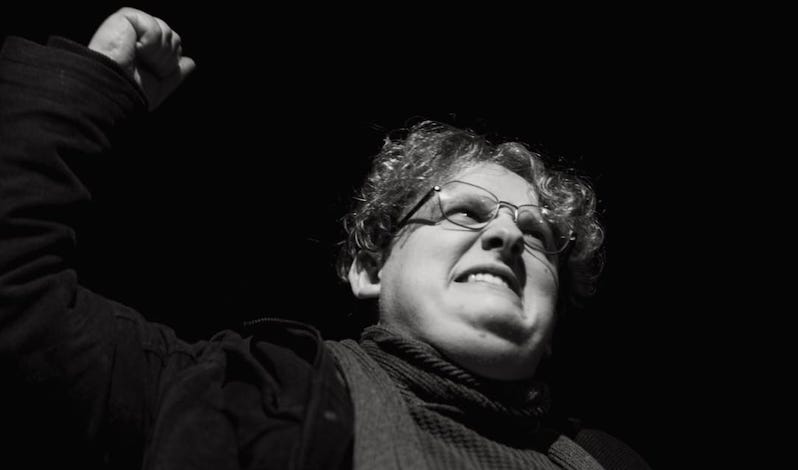
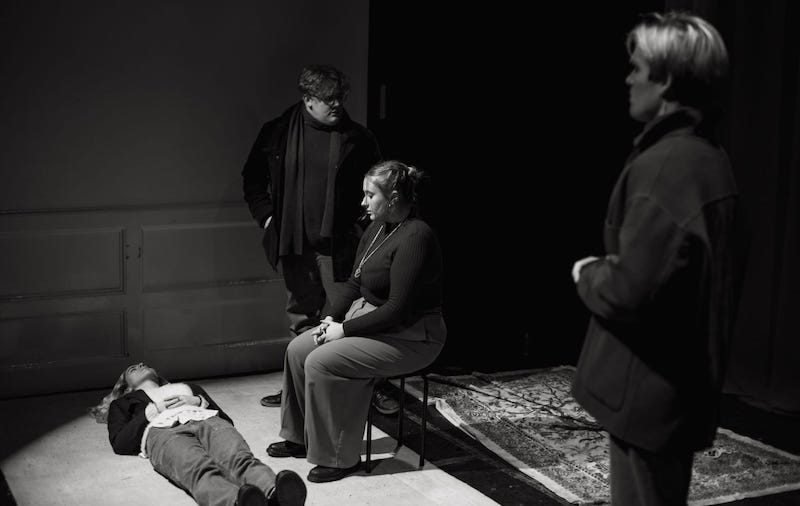
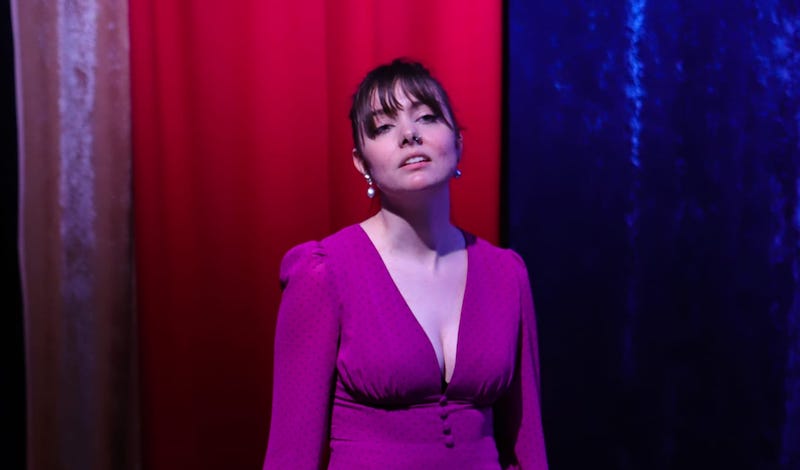
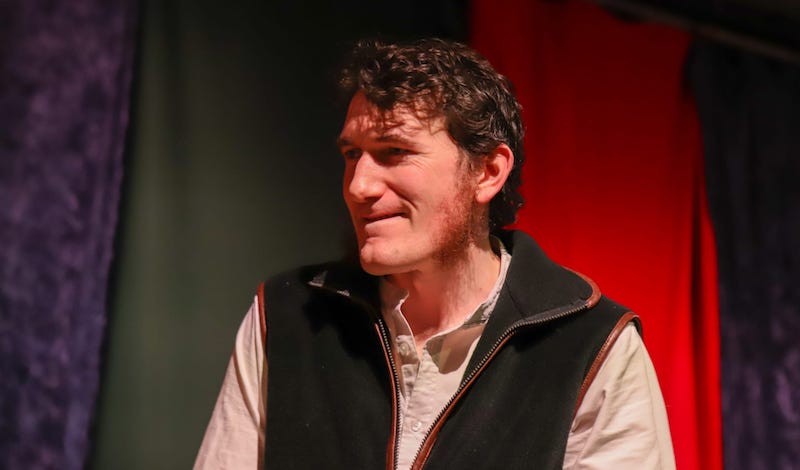
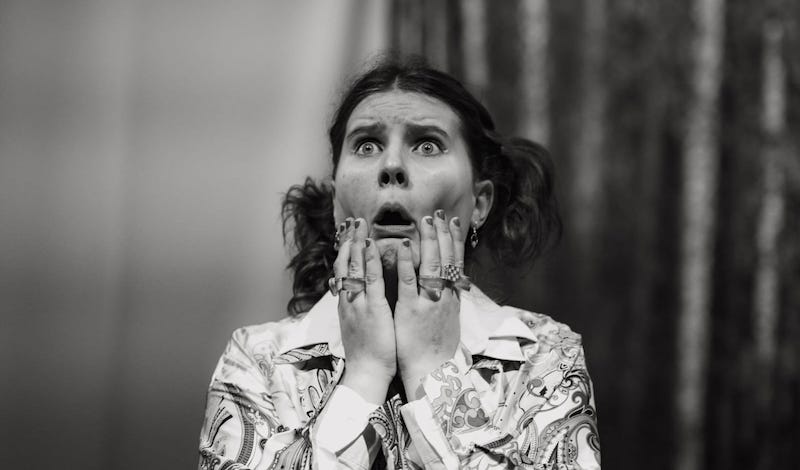










Vivid review of what sounds a great production. So much ‘relevant drama’ drifts into tiresome exaggeration. Well done all concerned.